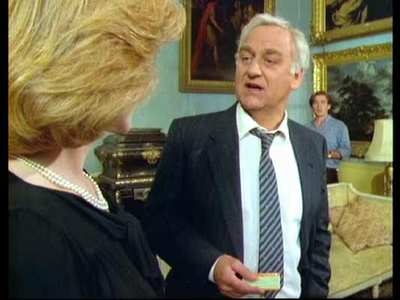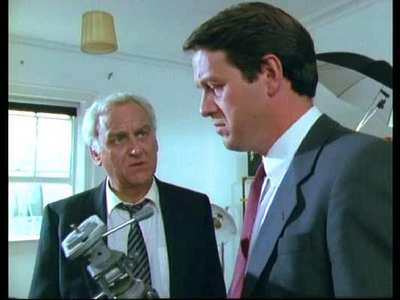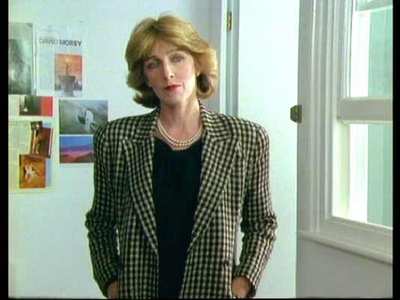Review of Inspector Morse: Last Bus To Woodstock/The Ghost In The Machine
Introduction
Colin Dexter`s Morse novels have become some of the most popular British detective pieces of the past 20 years. This is interesting because they are not particularly likeable works being somewhat cold and clinical. I suspect that their popularity is more due to John Thaw`s performance as Morse than the books themselves.
For 13 years between 1987 and 2000, Thaw played the intelligent loner with a vulnerability and dignity that endeared him to the nation. He was aided by Kevin Whatley as the loyal Lewis. It is a mark of these two actors` talents that they made an easy transition from (you would have though) inextricable association with other famous roles (Jack Regan and Neville Hope) to Morse and Lewis.
This two-disc set brings together the last episode of the second series "Last Bus to Woodstock" and the first of series three "The Ghost in the Machine" and should be a treat for all Morse fans - myself included.
However, as with Morse plots, nothing is as it might initially seem.

Video
Video is Full Frame 1.33:1 on both episodes and neither are overly impressive. "Last Bus to Woodstock" is the worst offender with a serious grain and digital artefact problems. This is always obvious and at its worst on background detail. "The Ghost in the Machine" is significantly cleaner, but there is still room for improvement. Colours are a little muted but otherwise fine.
From an artistic point of view there is little to criticise, with Oxford picture-postcardery starting to creep into the cinematography. This is especially obvious in "The Ghost in the Machine" - the first episode of series 3 - with some pretty scenes of Morse`s Jag gliding through picturesque countryside.
However, I have one major complaint about the visuals on both episodes and it is this: the cuts are jarring. Now, you shouldn`t be conscious of good editing but I noticed early in "Last Bus to Woodstock" that the cuts were very obvious. As the episode progressed, I became more obvious of this (as you do) until I was forced to use the slow motion feature on my player to track the problem down. Based on the cuts I checked, the last few frames of each scene are unstable, they various hop a few pixels up and down or step and stretch vertically. This is present on both discs - less so on the more recent "Ghost in the Machine" - and I find it exceptionally jarring. I could ignore the grain (it`s constant and you`ll unconsciously mask it out) but this sort of irregularity is impossible to ignore and destroys your enjoyment of the episodes. Hence, the very low score for video.

Audio
The audio is DD 2.0 for both discs but there is little use made of stereo separation that I could hear. That said, the audio is perfectly acceptable and dialogue is very clear. Barrington Pheloung`s evocative scores are reproduced well and overall the sound is enjoyable.

Features
None other than a dull photo gallery.

Conclusion
Both episodes are fine examples of Morse in action. Intelligent plots pursued at a leisurely pace by the cultured loner. Morse is a (largely) self-educated working class boy and has a chip on his shoulder when it comes to the over-privileged Oxford elite and this comes across in Thaw`s performance during "The Ghost in the Machine".
Sex, money and murder are the main themes running through Morse (and most fiction when you think about it) and these are present and correct. The plots are good - "Last Bus to Woodstock" based on a Colin Dexter novel, "The Ghost in the Machine", not. Performances are generally good with most of the kudos going to Whatley and the masterful Thaw. The remainder of the casts are filled with the best of British character actors and these generally work well however, sometimes, their familiarity works against them. Patsy Byrne, for example, is inextricably linked with Nursie from Blackadder and does nothing to play against type in "The Ghost in the Machine". In the same episode, though, Patricia Hodge`s aristocratic Lady Hanbury is superb. Special mention has to go to Amanda Hillwood as pathologist Grayling Russell who strikes up a subtle romance with the solitary Morse through the 3rd series.
Good entertainment but poorly treated on these discs.
Your Opinions and Comments
Be the first to post a comment!